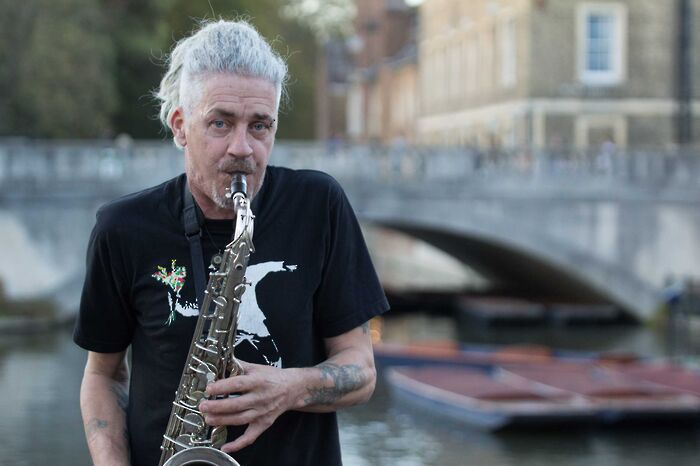Switchboard goes to the ends of the Earth
Switchboard presenter Raphael Korber-Hoffman talks to Cambridge’s polar scientists

The polar extremes are some of the most remarkable areas of the world both in terms of wildlife and stunning natural beauty. Yet very few people have travelled to the North or South Poles due to their geographic isolation and extreme temperatures. This week, in our episode on Changing Climate, Switchboard spoke to two scientists from the Scott Polar Research Institute in Cambridge to find out more about what it’s like to go to the ends of the Earth.
Dr Julien Dowdeswell is the director of Scott Polar Research Institute, and has travelled extensively around both the Arctic and Antarctic conducting research on glaciers and ice caps. Dr Dowdeswell reflected on the journeys he took at the beginning of his career, during which it was sometimes impossible to make contact with the outside world for days on end, and icebergs presented a constant threat to the safe passage of his ship. Following in the footsteps of his heroes, Antarctic explorers Scott and Shackleton, Dr Dowdeswell has visited Antarctica on numerous occasions. He departs on a 7 week voyage to the Weddell Sea in January. Navigating the icy waters in small dinghies, Dr Dowdeswell reflected on being carefully watched by groups of humpback whales and walruses, and being surrounded by curious Emperor penguins who had come to investigate the visitors to their frozen kingdom.
“Being surrounded by curious Emperor penguins who had come to investigate the visitors to their frozen kingdom.”
However, to view the same Arctic wonders that Dr Dowdeswell speaks so fondly of may not just be difficult in the future, but impossible. Scientists vary in their estimates, but the Arctic may be ice free in summer in as soon as three decades. The Arctic experiences temperature increases at twice the rate of the global average, and being one of the most sensitive ecological regions of the world, is at great risk.
Switchboard also spoke with Dr Michael Bravo, who has lived with Inuit communities in Northern Canada throughout his career. We spoke with him about the Inuit desire for decolonisation, as well as the importance of de-romanticising the Arctic in the popular Western imagination so that we can better understand its cultural significance.
Lastly, we spoke with Sir Partha Dasgupta, recipient of the prestigious Tyler Prize in 2016, and member of the Pontifical Academy of Social Sciences. Sir Dasgupta is a pioneer in the field of environmental economics and we asked him about the importance of understanding climate and the changing environment when considering economic and human development over the next half century.
Switchboard is available now on all podcast platforms.
 Features / Should I stay or should I go? Cambridge students and alumni reflect on how their memories stay with them15 December 2025
Features / Should I stay or should I go? Cambridge students and alumni reflect on how their memories stay with them15 December 2025 News / Cambridge study finds students learn better with notes than AI13 December 2025
News / Cambridge study finds students learn better with notes than AI13 December 2025 News / Dons warn PM about Vet School closure16 December 2025
News / Dons warn PM about Vet School closure16 December 2025 News / News In Brief: Michaelmas marriages, monogamous mammals, and messaging manipulation15 December 2025
News / News In Brief: Michaelmas marriages, monogamous mammals, and messaging manipulation15 December 2025 Comment / The magic of an eight-week term15 December 2025
Comment / The magic of an eight-week term15 December 2025









